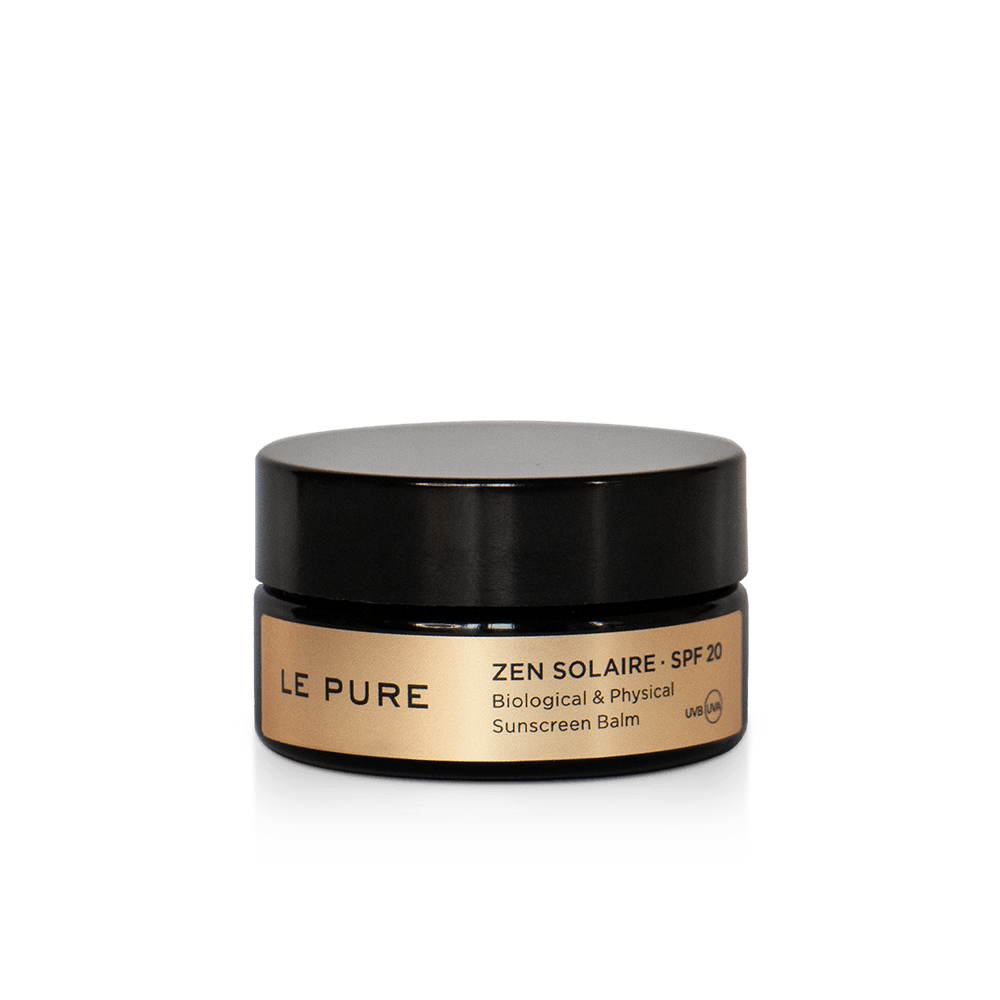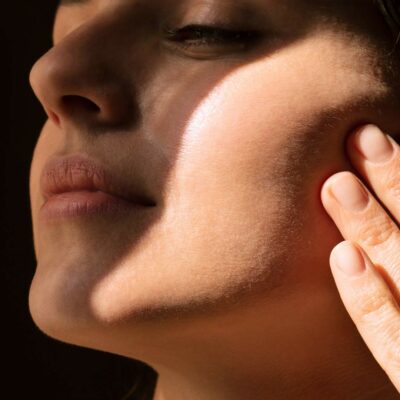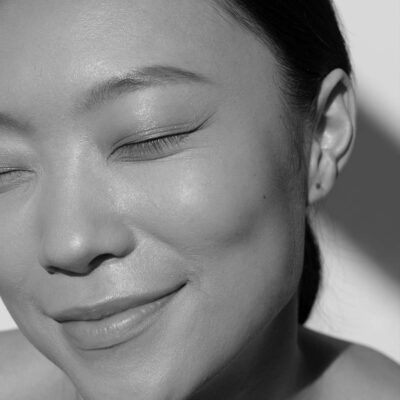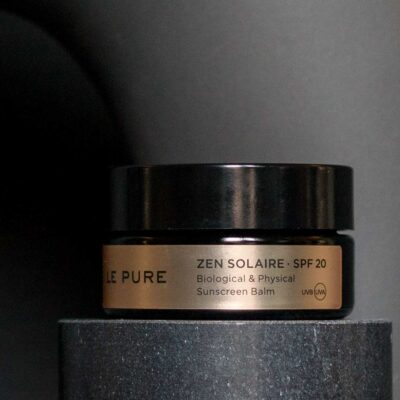How Much SPF Should I Use?
Protecting your skin from damaging sun radiation is an incredibly complex issue and finding the ideal balance for your skin is key to prevent skin burns, skin cancer, premature skin aging and vitamin D deficiency. How much SPF should I use is a very important question to ask and the answer is more complicated than you might think.
The European Commission states: “If a product is applied correctly, an SPF of 15-25 suffices to protect a person with normal skin from sunburn”.

The current recommendation given by the media and dermatologists alike is to choose an SPF of at least 30. This considers that people do not use the right amount of sunscreen and that they don’t reapply as often as indicated. It is also a general recommendation that applies to everyone, no matter the age, lifestyle, medical history, and income.
Biological sunscreen and progressive sun exposure are not considered in the general recommendation, because this type of sun protection needs more attention and is not as cheap as chemical or mineral sunscreen.
Furthermore, most dermatologists are not familiar with natural remedies when it comes to treating the skin. Their treatment protocols are mostly based on topical, synthetic formulas and very rarely on integrative healing solutions including plant-based skincare, nutrition, and lifestyle changes. As they lack experience with biological sunscreen, they cannot recommend it.
In order to answer the question ‘How much SPF should I use?’, we have to examine a series of other important factors to create a personalized sun protection regimen.
How much SPF is good for the skin?
Sun protection is important and necessary, but very often the negative effects of sunscreen are disregarded. How much SPF is good for the skin depends on the intensity of the sun, the type of sunscreen and your skin’s history.
Chemical filters can alter the hormonal system and due to their massive polluting impact on the environment, they have been prohibited in some countries and regions. In our opinion, they should not be used under any circumstances.
Mineral sunscreen is better for the environment, but to achieve high factors these formulations require the use of chemically modified fats.
These fats create a layer on the skin and interfere with the skin’s metabolism if they are applied very frequently. The skin cannot function properly with this unnatural layer and its cell regeneration and self defence abilities are reduced. The daily use of this type of formulation can lead to enlarged pores, unbalanced skin fat, uneven skin tone and premature aging.
We need to find the ideal balance between protecting our skin from the sun and not covering it excessively over prolonged periods of time.
The best solution is biological sunscreen with a small amount of minerals. Biological sunscreen boosts the skin’s self defence mechanisms and, together with progressive sun exposure the skin, can be trained to effectively protect itself against sunburn and premature aging. The SPF factor only indicates the skin’s capacity to protect itself from erythema (sunburn), but not towards the negative effects produced by UVA radiation.
The antioxidants of high-quality plant nutrients allow the skin to balance the free radicals in the skin and avoid skin damage and premature aging. The reason there are very few biological sun filters on the market is that they are very costly in production and their SPF values are not very high.

SPF tests are done on the untanned skin of human volunteers, usually on the back or the buttocks. Therefore, it does not take into account the concept of progressive sun exposure.
The skin’s self protection mechanism can be trained if we expose ourselves to the sun for a few minutes per day and increase the time over a couple of weeks. Together with a high-quality biological sunscreen, the skin can acquire a certain degree of self protection that increases the SPF protection of the biological sunscreen product.
Working with the natural functions of the organ will always give us better and healthier results in the long run. Working against the organ functions by overprotecting and suffocating the skin can lead to premature aging and hyperpigmentation.
How much sun exposure is healthy?
The SPF value does not refer to the time sun exposure is healthy, but to the amount of solar exposure the skin can tolerate.
Since the SPF values and the length of sun exposure are not the same thing, we have to consider the UV index and the time of the day to determine how long we can safely expose our skin to the sun.

Depending on the sun intensity, the following exposures can result in the same amount of solar energy:
- 1 hour at 9:00 am
- 15 minutes at 1:00 pm
According to this, it makes no sense to apply an SPF 50 at 7 am on a cloudy winter morning. Since determining how much sun protection each person needs seems too complex, the standard recommendation is an SPF 30 or 50 without considering the negative consequences for the skin.
High SPF products give a false sense of security and increase the risk of overexposing the skin to the sun.
Keep in mind that prolonged sun exposure when the UV index is high is always bad for your skin. Even if you apply a high SPF sunscreen and do not burn your skin, the radiation is still causing sun damage that leads to premature skin aging.
How much sun exposure is actually safe for your skin and which kind of protection is the most effective for you depends on a series of additional factors.
Which factors determine my need for sun protection?
Preparation of your skin for the sun
Nourishing your skin from the outside and inside with photoprotective plant nutrients creates the optimal conditions before you start exposing your skin to the sun. Proper skincare and nutrition with high-quality plant nutrients naturally prepare your skin for the sun.
Progressive sun exposure
Like with any other organ in the body, progression, and continuity is everything. If you want to improve the functioning of your heart with exercise, starting slowly and increasing the intensity is key to improving your heart function without causing damage.
The same is true for the skin.
Small amounts of sun exposure build up the skin’s resistance and self defence mechanisms. Start with a few minutes and slowly increase the time you expose your skin to the sun.
Vitamin D synthesis
Solar UV Index (Sun Index)
The UVI measures the strength of the solar radiation on a particular day and geographic location. There are many environmental factors that influence the intensity of UV radiation: the thickness of the ozone layer, the latitude, the altitude, the presence of clouds, and the contamination.
The UV index also depends on the hour of the day, and the value that is published usually refers to the highest intensity of UV radiation of the day, which is around 12:00 noon.
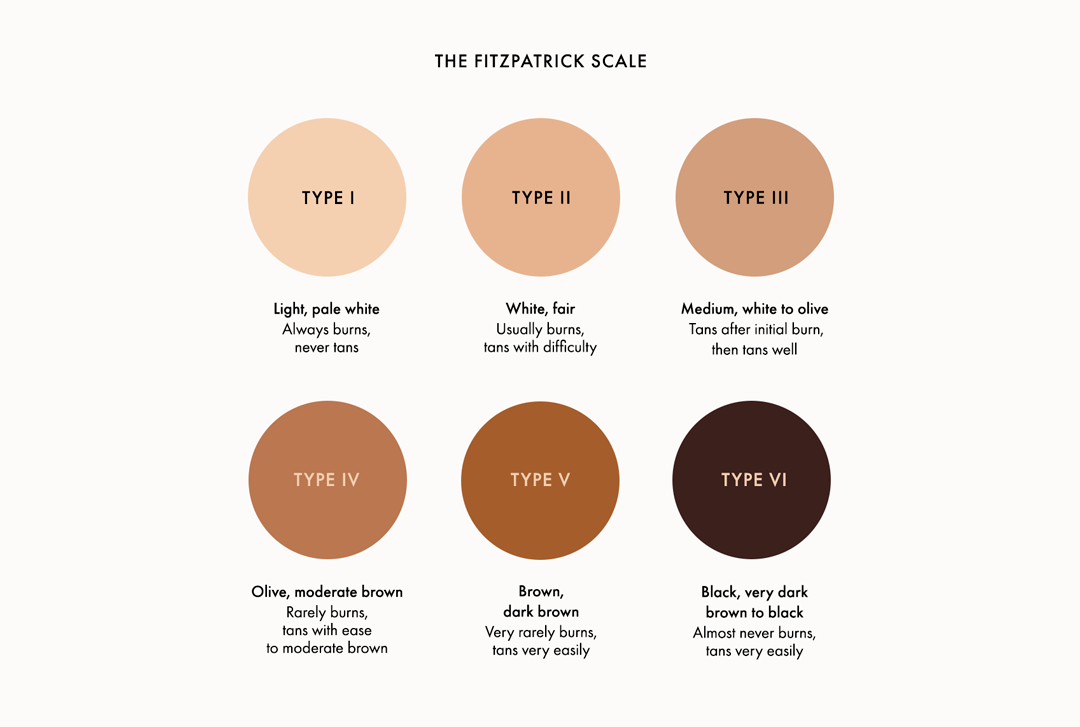
SPF and skin type
Lighter skin types have fewer melanocytic cells than darker skin types. Melanocytes produce the skin pigment called melanin, which naturally protects the skin from UV radiation. Skin phototypes 1, 2, and 3 on the Fitzpatrick scale are more prone to sunburns and therefore need more sun protection than skin types 4, 5, and 6.
SPF and skin condition
The nourishment of the skin depends on your skincare products and your diet. Creams that contain chemically modified fats may give the impression of nourishing the skin, but they just create a layer on the skin surface without nourishing the deeper layers.
Well-nourished skin gets stronger and more resistant over time and can defend itself better against outside aggressions such as solar radiation.
A well-balanced diet provides the skin with nutrients from the inside, which further increases its resistance.
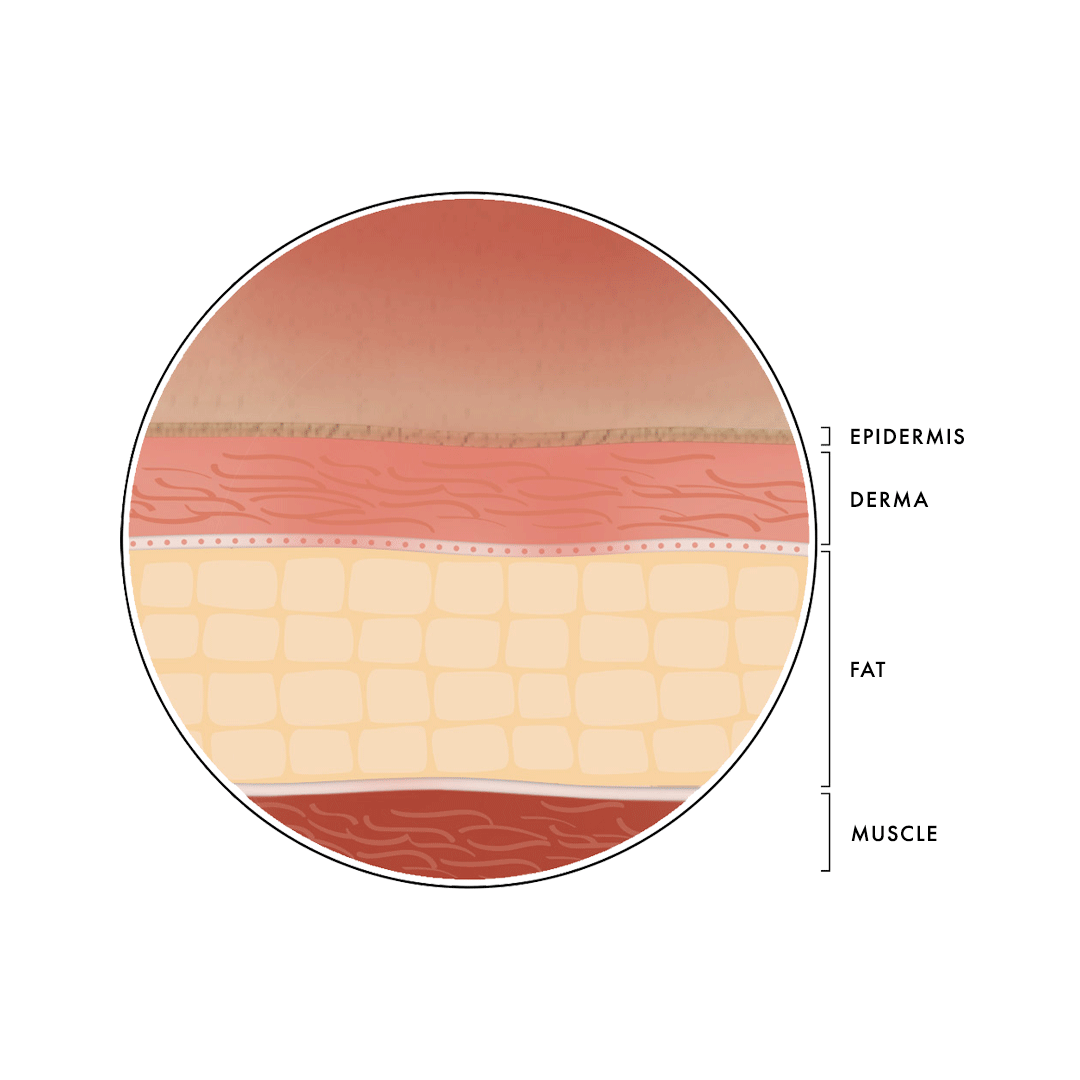
Photosensitivity and sun capital
Sun capital refers to the amount of UV radiation that your skin can tolerate before it becomes damaged. How much sun capital each person has is determined at birth and depends on the phototype of your skin.
Our sun capital is limited and, by the time you turn 20, you have already used up to 50% of your sun toleration capacity. If you had a lot of sunburns in your early years, you may have used up a lot of this precious capital and have to be more careful with sun protection.
Sunburns in early childhood weaken the skin and can cause photosensitivity later on. Signs of photosensitive skin and a reduced sun capital include dark spots (sun pigmentation), redness, wrinkles, flaccidity, and itchy eruptions (sun allergy).
It is important to treat these alterations and to nourish the skin with high-quality plant nutrients throughout the whole year, while avoiding substances that suffocate the skin.
Skin treatments
Laser and chemical peelings literally burn the skin, making it more fragile and sensitive to sun damage and hyperpigmentation. The skin’s cell memory remembers the burning of the skin and reacts to sun radiation by increasing pigmentation to protect itself.
Repeating such treatments after every summer creates a vicious cycle and the skin becomes thinner, more fragile, and even more prone to pigmentation problems. Be extra careful after these types of treatments and only expose your skin to the sun for a few minutes per day.
Instead of these aggressive treatments, we recommend treating uneven pigmentation with photoprotective plant nutrients that improve the functioning of the melanocytic cells and increase the skin’s natural defense mechanisms. This natural way requires patience and extreme caution. It can take many months and sometimes even a year or two. But it is the best solution to escape the vicious cycle of laser and hyperpigmentation.

What SPF should I use?
The answer to the question of what SPF should I use is also complicated, and it depends on the factors previously mentioned. In most cases, you can train your skin with progressive sun exposure and effectively protect it with biological sunscreen.
In combination with protective clothing and avoiding exposure during the hours with the highest UV index, your skin is safe from sunburn and premature aging.
There may be times when you need to apply a higher SPF mineral sunscreen for a few hours or a certain period. For example, during an all-day outdoor event in the summer, where there is no shade, and you can’t wear a hat, or if you make a trip to the Caribbean in the middle of the winter and have very fair skin.
Applying that type of sunscreen once in a while for a few hours will not cause too much harm to your skin. But we definitely do not recommend its application on a daily basis all year long.
What SPF should I use daily?
Biological sunscreen permits the synthesis of vitamin D, which leads to the optimal functioning of the cells that create the skin pigment melanin.
It is important to keep this in mind when asking what SPF should I use daily. Sun protection formulas like Zen Solaire or Perfecting Illumination allow the skin to breathe, and their plant nutrients boost cell regeneration and its defense against free radicals.
This type of sunscreen is also the ideal option for people with sun pigmentation problems, although it takes some time to strengthen the skin, balance the melanocytic cells, and reduce the appearance of dark spots.
Consider that these pigmentation spots took many years and decades to appear on the skin. Therefore, they won’t disappear in a month or two. But profoundly nourishing the skin over time and respecting its natural functions and cycles will bring long-lasting, healthy results.
The sunscreen you apply daily on your skin has to be a formula that is highly beneficial for your skin type.
Depending on your lifestyle and work, a biological sunscreen such as Perfecting Illumination may be sufficient. For stronger sun intensity, use Zen Solaire, a hat and protective clothing.
The question “How much SPF should I use” depends on all the factors mentioned above. It is important that you design your own sun protection strategy and train your skin at the beginning of spring months with a few minutes of sun exposure each day. As the sun gets stronger, increase the use of biological sunscreen, clothing, and a sun hat. Start carefully and be overly cautious until you know what your safety limit is.

